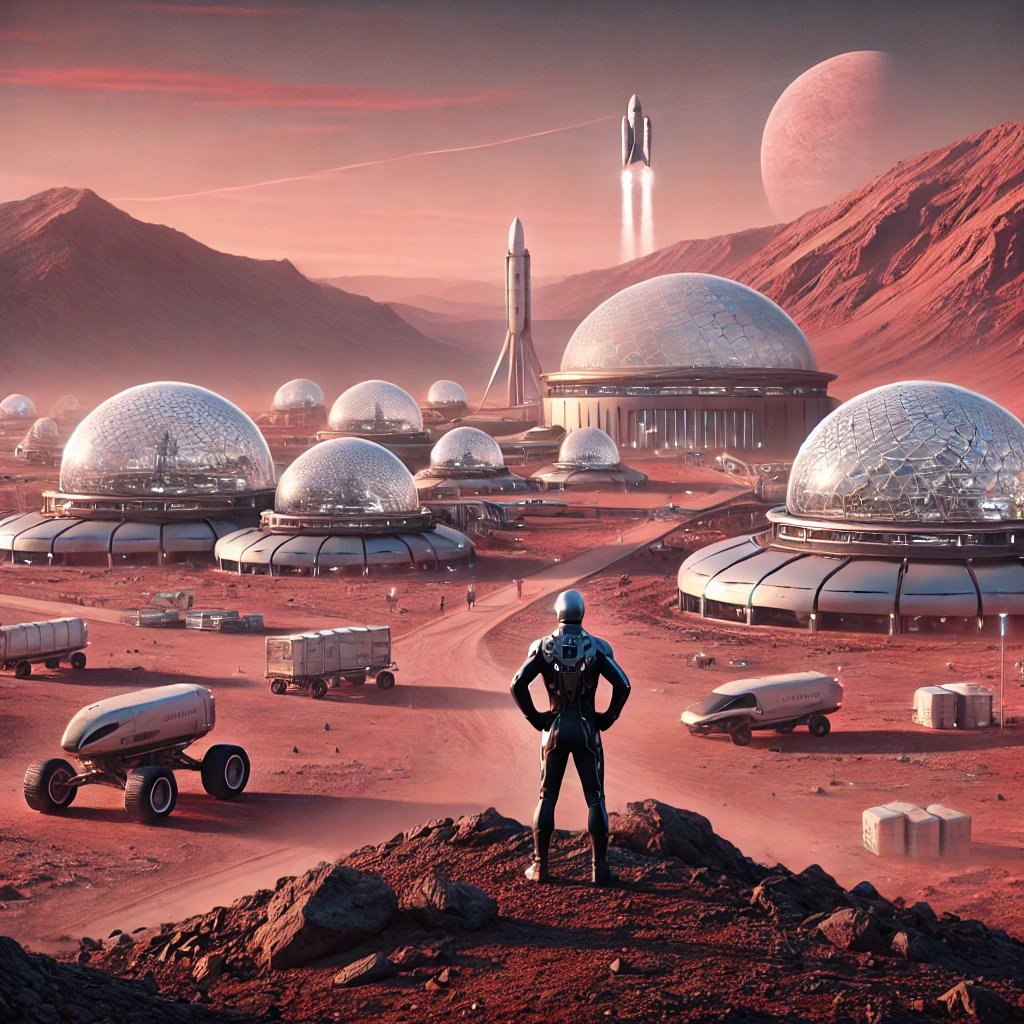Project Mars: A Technical Tale

Wernher von Braun’s 1952 science fiction novel Project Mars: A Technical Tale has captured significant attention, not only for its forward-looking ideas on Mars colonization but also for its curious mention of a Martian leader titled “Elon.” This intriguing detail has sparked fascination, leading many to wonder whether von Braun tapped into something beyond ordinary imagination—perhaps glimpsing a future figure with ambitions strikingly similar to those of Elon Musk, who today stands at the forefront of efforts to establish humanity on Mars. In Project Mars, “Elon” functions not as a personal name but as a title akin to “president” or “king,” denoting the leader of the Martian government. The title appears to signify authority and vision within the Martian society depicted in the novel, suggesting that von Braun may have chosen “Elon” for its otherworldly resonance. Yet, for some, it feels as though von Braun wasn’t merely imagining a futuristic society but somehow attuning himself to a universal frequency, accessing knowledge of events yet to come.
Von Braun, an extraordinary mind and pioneering aerospace engineer, had long championed human space exploration. His narrative in Project Mars is an informed vision rooted in his deep technical expertise and genuine passion for space travel. The book blends speculative science with von Braun’s profound understanding of rocketry, interplanetary travel, and the logistics of sustaining life on another planet. Through this fictional tale, von Braun offers readers a meticulously detailed roadmap of Mars colonization, crafted with a level of scientific depth that seems to push the boundaries between fiction and foresight. This type of speculative work, common in mid-century science fiction, often gave authors a means to tap into possibilities that lay beyond the immediate horizon. And for some, it suggests an almost cosmic alignment—a hint that von Braun may have accessed ideas flowing from a source beyond his individual mind, potentially something akin to a “download” from a higher intelligence eager to guide humanity forward.
As an ardent advocate for space exploration, von Braun’s real-life career was marked by achievements that brought humanity closer to the stars. His work with NASA, particularly in developing the Saturn V rocket that launched humans to the Moon, demonstrated his commitment to pushing human boundaries. In Project Mars, he crafted a future in which humans had already overcome similar challenges, envisioning the governance of a Martian colony where the “Elon” would oversee the settlement’s stability and progress. This prescient narrative may seem like pure imagination on the surface, but some view it as a glimpse of a cosmic connection—an insight into the human potential that von Braun might have tapped into, inspired by forces beyond our ordinary understanding.
Elon Musk’s modern ambitions has spurred widespread fascination, fueling discussions about intuition, foresight, and the potential influence of non-human intelligence (NHI) on human creativity. Musk himself has humorously acknowledged this strange coincidence, adding a layer of intrigue to the story. Elon Musk calls himself an Alien and Elon does have blue eyes. For those open to the idea, it almost feels as though von Braun was in tune with a universal rhythm, receiving a kind of cosmic transmission that not only informed his technical dreams but aligned them with a future reality that now unfolds in front of us.
In real life, Elon Musk, the trailblazing force behind SpaceX, has achieved unprecedented success in the realm of rocketry, positioning humanity on the cusp of interplanetary exploration. With his ambitious plans to launch the Starship for lunar and Martian missions, Musk envisions a future where humans inhabit multiple planets. Numerous sightings of unidentified flying objects (UFOs) near SpaceX launches have fueled speculation about Musk’s awareness of non-human intelligence (NHI) and possible NHI technology. While Musk himself has humorously downplayed these incidents, noting a lack of concrete evidence, the frequency of these encounters raises questions about the realms SpaceX navigates. The interest in engaging Musk with compelling evidence of NHI presence suggests that some see him as a potential figure to shift the public dialogue on NHI, possibly positioning him as an unlikely ambassador in humanity’s quest for understanding the mysteries of space.
Within the broader genre of science fiction, von Braun’s imaginative world-building in Project Mars stands as part of a tradition where writers explore distant futures with astonishing foresight. Many science fiction authors have drawn on insights that seem to transcend their era, suggesting that these visions may, in some cases, stem from a collective consciousness or even interactions with NHIs who wish to accelerate human evolution. In creating a Martian society complete with its own titles, social structures, and technologies, von Braun contributed to a lineage of speculative thinkers who may be attuning themselves to knowledge that arrives from beyond the conventional boundaries of human experience.
While Project Mars may simply be fictional, but in detail, the synchronicity with Musk’s name and mission has fueled theories that von Braun—and perhaps other visionaries like him—might have been “plugged into” a deeper flow of knowledge. For some, this synchronicity points to the possibility that humanity receives periodic guidance from intelligences that wish to see us thrive and evolve.

